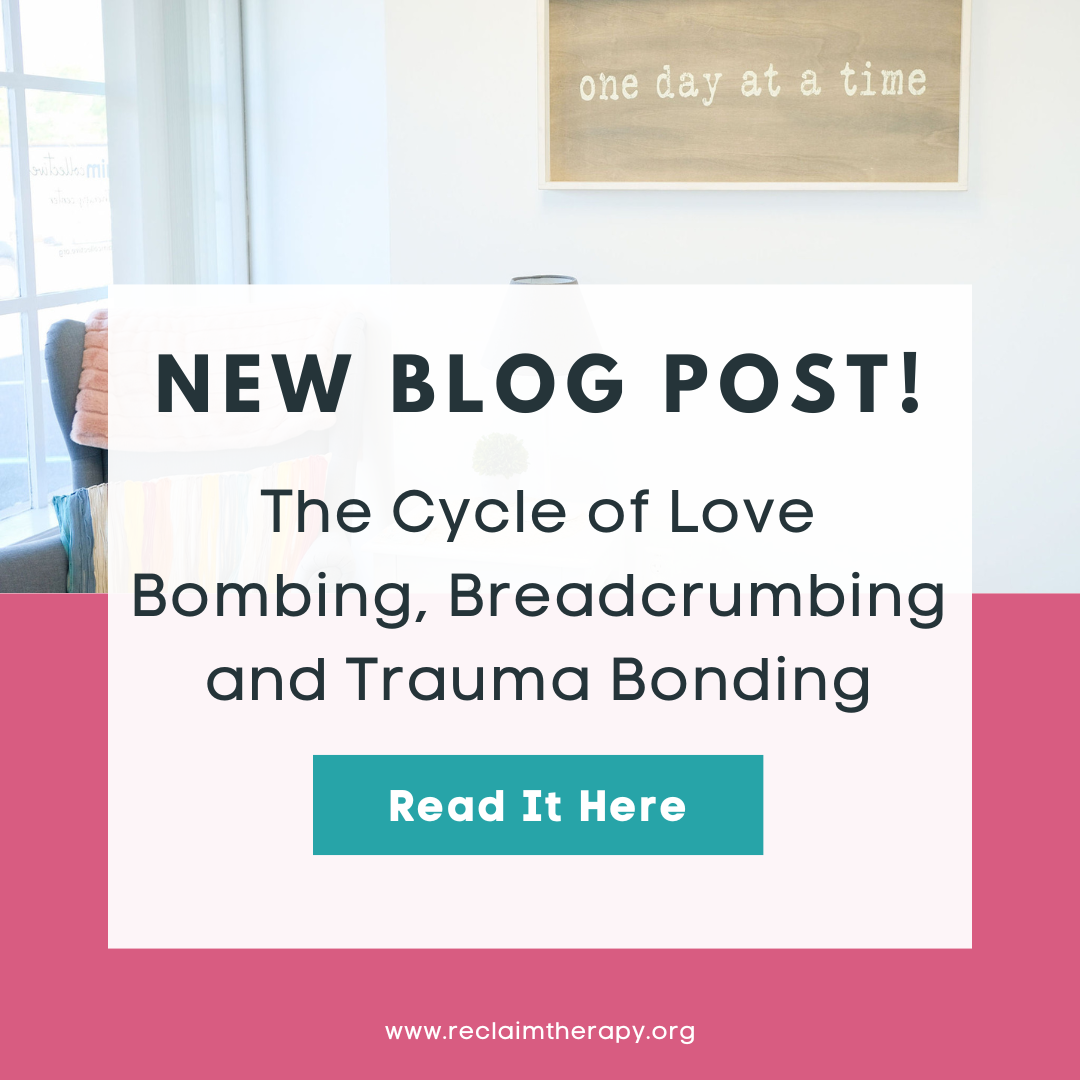
The Cycle of Love Bombing, Breadcrumbing and Trauma Bonding
You know that kind of relationship that feels electric at first?
The one that sweeps you up, makes you feel chosen, alive, like maybe this time, finally, you’ve found something real?
But then, almost without warning, it shifts.
The warmth cools.
The attention fades.
And, you’re left holding the thread, trying to make sense of what just happened.
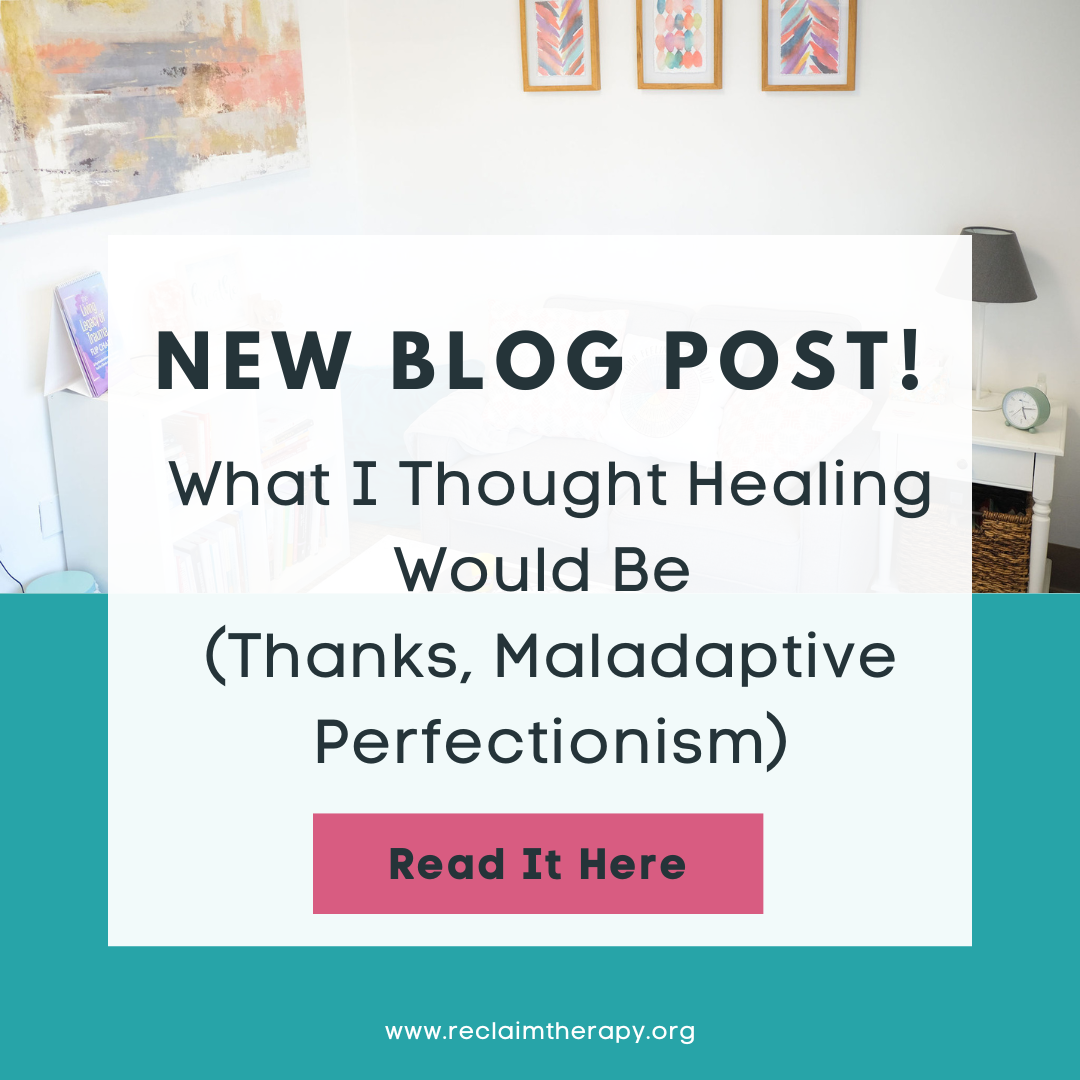
What I Thought Healing Would Be (Thanks, Maladaptive Perfectionism)
Let’s be real: maladaptive perfectionism is like that mother-in-law who shows up uninvited and starts reorganizing your kitchen.
At first, it seems helpful. Motivating, even. You tell yourself, “Well… she means well.”
But next thing you know, everything’s in a “better” place… and you can’t find a damn thing anymore.

5 Ways Yoga Has Supported Me in My Healing
The practice of yoga has offered me so much over the years. It’s hard to imagine myself without the tools I've gained from this practice.
This is not to say that yoga is the magic solution to all of our individual and worldly problems. (I wish it were!)

How to Shut Your Brain Off, According to a Trauma Therapist
But instead of drifting into sleep, your thoughts pick up speed. Suddenly, you’re reviewing every awkward conversation you’ve ever had, planning tomorrow’s to-do list, worrying about things you can’t control, and now it’s 1:42 a.m. and your brain is still going.
Sound familiar?

Perfectionism and Trauma: 5 Ways Perfectionism Is Getting in the Way of Healing (And What to Do Instead)
If you’ve been working through recovery, whether from trauma, an eating disorder, or years of feeling like you had to hold it all together, there’s a good chance you’ve bumped into perfectionism.

Signs of Safety to Look for in Trauma Recovery
There are moments in recovery from trauma and eating disorders that are easy to miss.
You might feel your shoulders drop after a hard conversation. Or find yourself breathing through a grocery store line instead of dissociating. Or realize you’re actually tasting your food.

Nervous System Regulation Isn’t Just About Being Calm
If you’ve been showing up for therapy, practicing self-awareness, setting boundaries, and still find yourself overwhelmed or disconnected, it’s easy to wonder if you’re missing something, or not doing something “right”.

What Does Dissociation Feel Like? Why You Might Feel Unsafe in Your Body After Trauma
Feeling disconnected from your body is far more common than most people realize.
Research shows that nearly half of people with trauma histories experience significant dissociation - a protective process where your system pulls you away from overwhelming thoughts, emotions, or sensations.

The Grief of Emotional Neglect and Why It Still Hurts
You don’t remember a tragic event.
There was no funeral. No big goodbye.
You were clothed. Fed. Maybe even told you were loved.
And yet... there’s this ache.
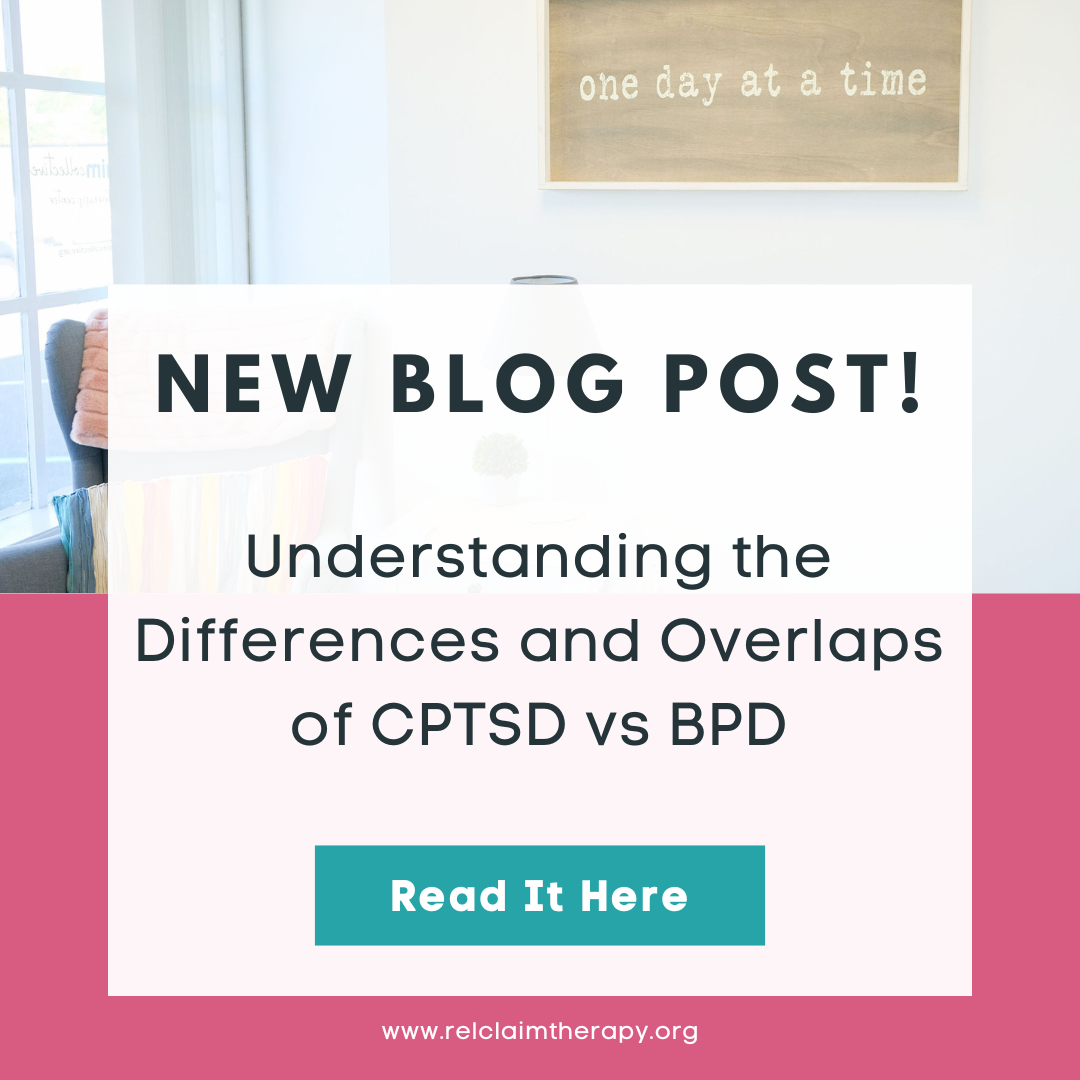
Understanding the Differences and Overlaps of CPTSD vs BPD
If you’ve ever found yourself wondering whether you have complex PTSD (CPTSD) or borderline personality disorder (BPD), or if you’ve been given conflicting diagnoses, many people have had similar experiences.

How to Recognize and Heal from Emotional Flashbacks
Maybe someone’s tone of voice sets something off inside you, or you make a small mistake and suddenly feel like a complete failure, unworthy of love or belonging.
No clear memory. No obvious trigger. Just an emotional landslide that feels impossible to stop.

The Trap of Hyper Independence and and How it Affects Our Relationships
If you grew up feeling like you couldn’t rely on anyone, it makes sense that as an adult, you might operate like you don’t need anyone.
Hyper-independence, being so self-reliant that you struggle to ask for or receive help, often gets framed as a strength.
People admire it.
They call you “capable,” “driven,” and “strong.”

How to Heal from Narcissistic Abuse After Feeling Like You’ve Lost Yourself
Narcissistic abuse doesn’t just end when the relationship does.
The damage lingers: self-doubt, emotional exhaustion, nervous system burnout, and a nagging feeling that maybe it really was all your fault.
It’s not.

5 Signs of Narcissistic Abuse (And How to Begin Healing)
Narcissistic abuse is one of the most confusing and damaging forms of emotional manipulation.
It doesn’t leave visible scars, but it deeply impacts your sense of self, making you question your reality, your worth, and even your ability to trust your own mind.

Why You Might Feel Like You Don’t Belong
You know that feeling…That moment when you walk into a room, maybe a party, a meeting, even a family gathering, and suddenly, it hits.
“Everyone else seems to know something I don’t.
They belong here. I don’t.”

How To Heal Your Inner Child
Lately healing the inner child has been trending on social media. Tik tok’ers and tik tok therapists are sharing tips and touting that the way to heal from trauma is to heal your inner child.
But, what exactly does that mean? Why is it important? Is it really that easy? (spoiler alert- it’s important and often not as easy as they say it is!)

How Childhood Emotional Neglect Can Show Up In Adulthood
Emotional neglect is one of the most overlooked but deeply impactful forms of trauma.
Unlike other forms of trauma, it’s not about something that happened—it’s about what didn’t.

What is Maladaptive Daydreaming?
Do you ever feel like your mind pulls you into a world of vivid stories or fantasies, leaving reality behind? Or do you ever find yourself so disconnected that everything around you seems unreal.
These experiences might seem similar, but they’re not quite the same.
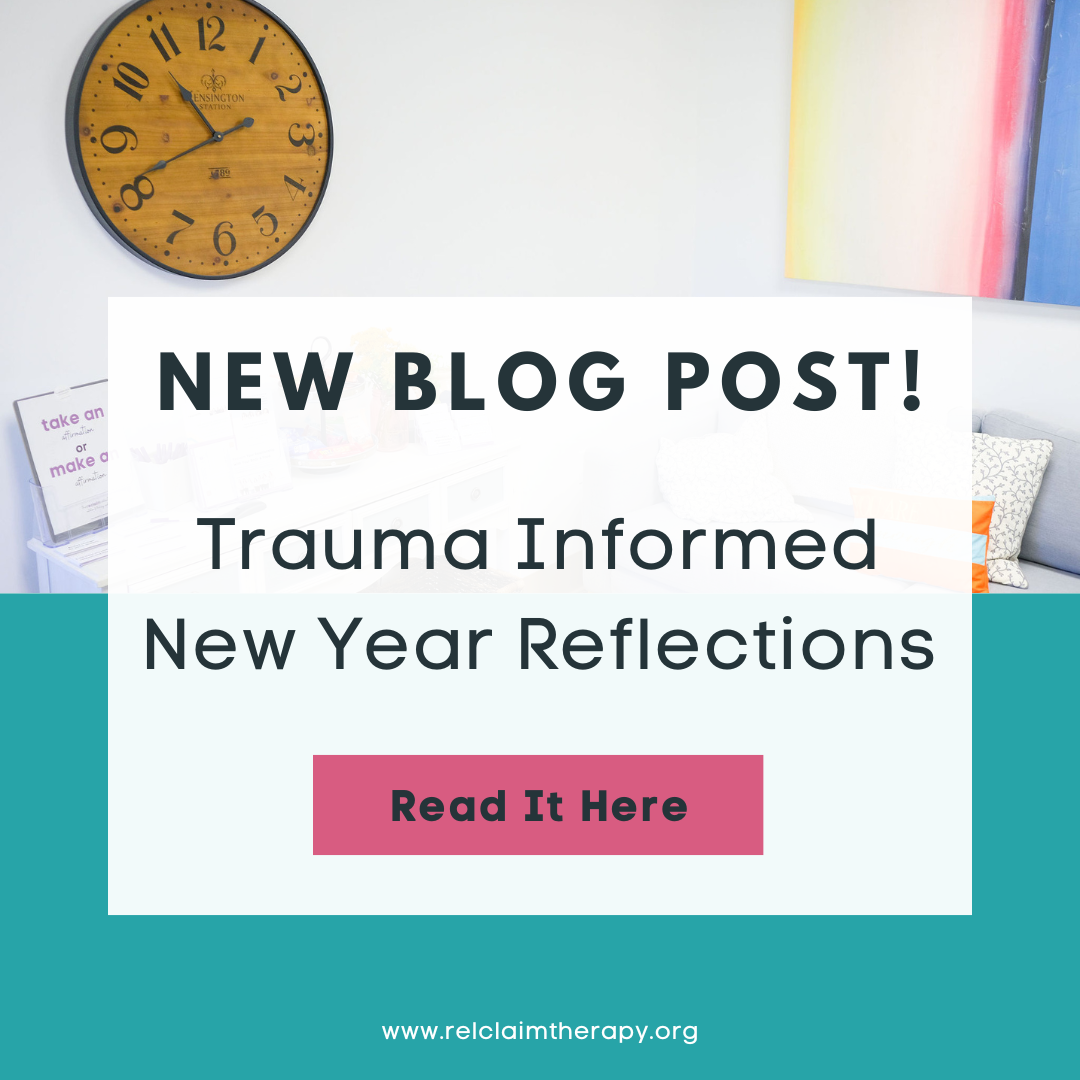
Trauma Informed New Year Reflections
Year-end reflection can feel overwhelming, especially if you’ve experienced trauma. It’s okay if traditional New Year’s prompts don’t resonate with you-they weren’t made with your experiences in mind.
This blog offers a softer, more supportive way to look back on your year.
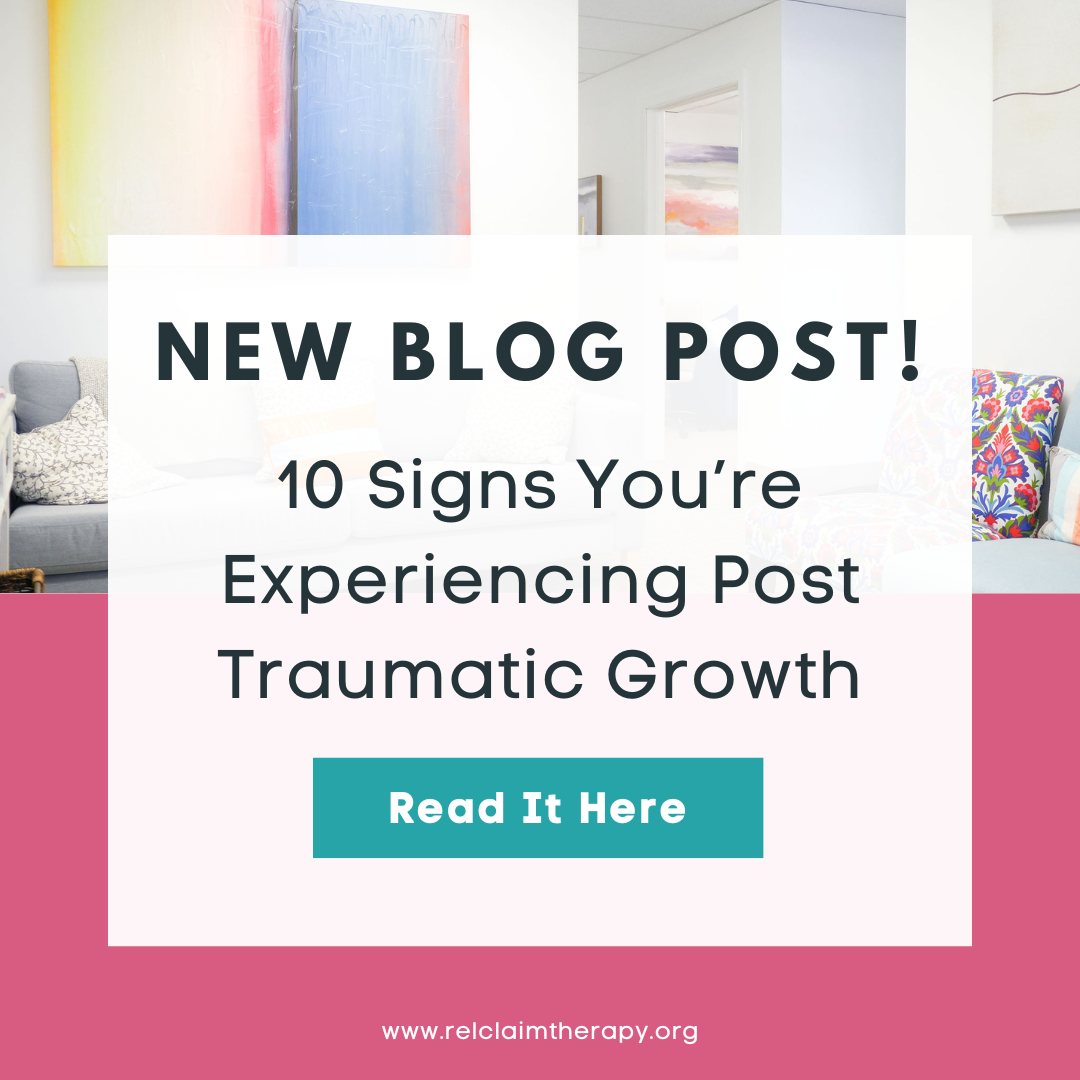
10 Signs You’re Experiencing Post Traumatic Growth
Here at Reclaim Therapy, we know healing is a deeply personal, nonlinear journey. Growth doesn’t erase the pain, but sometimes, it can rise alongside it.
Post-traumatic growth (PTG) describes the changes people may experience through the process of grappling with trauma.
